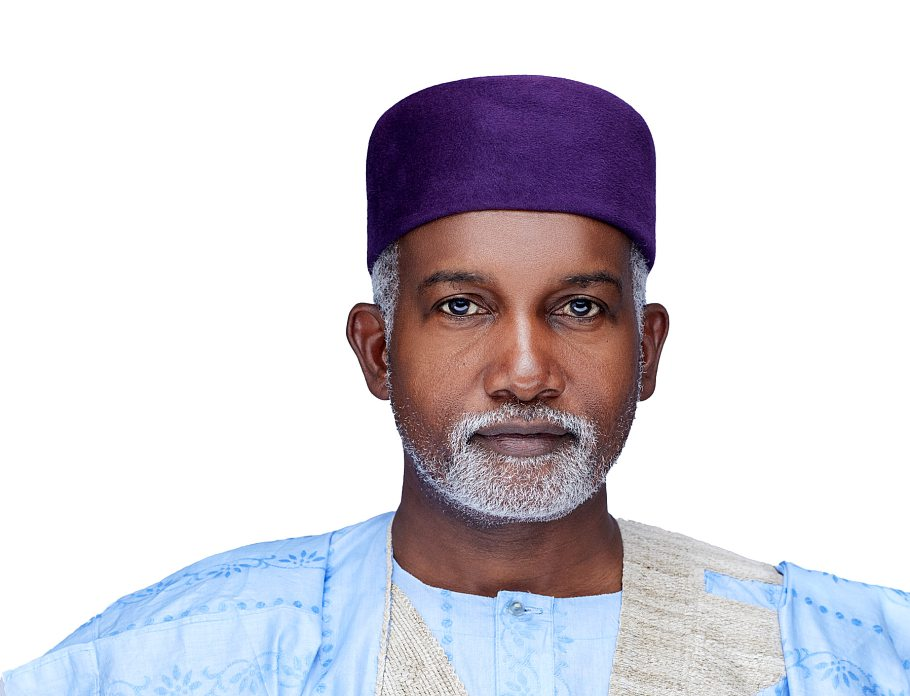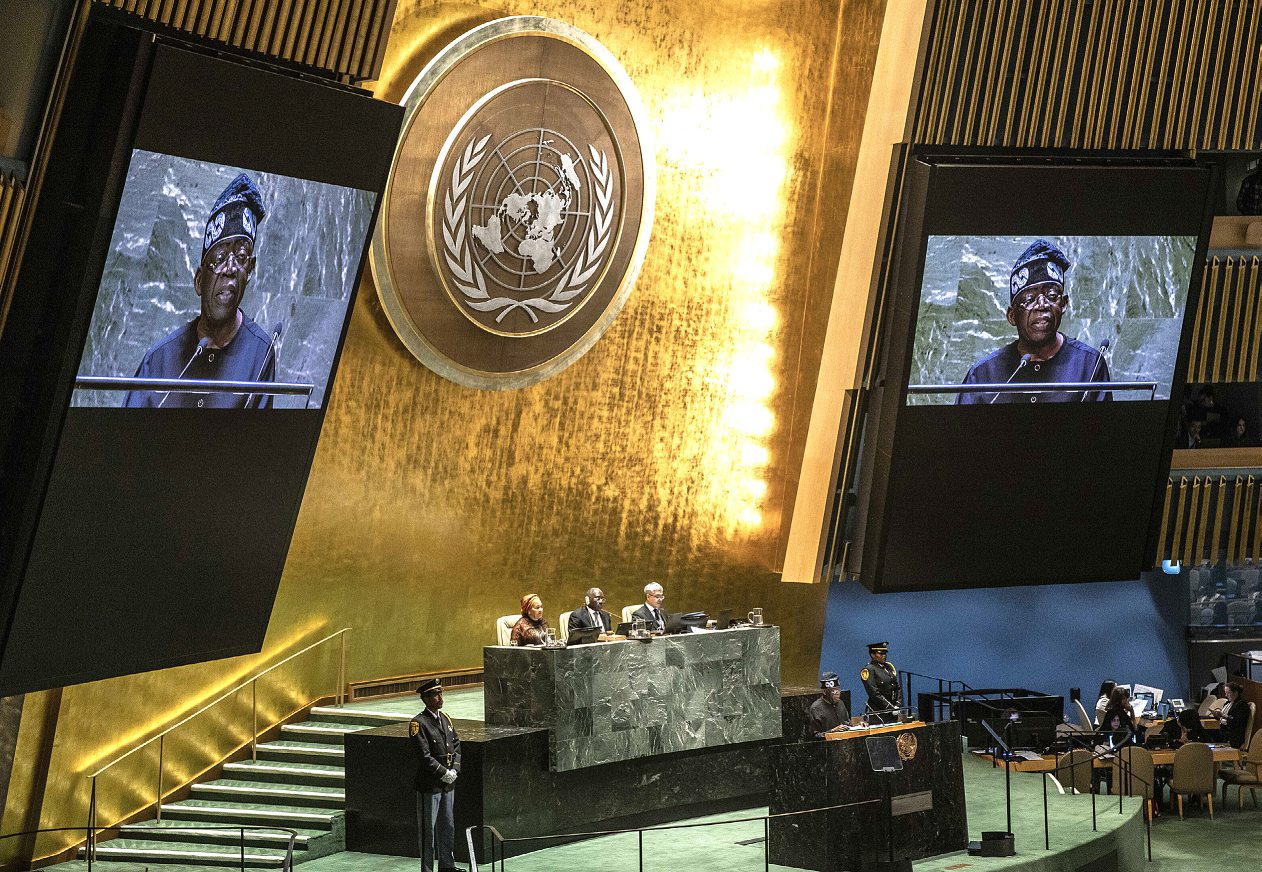Yusuf Tuggar
Minister of Foreign Affairs
The Tinubu administration’s Vision 4D Diplomacy is based on four essential principles: development, democracy, demography and the diaspora.
AM: As soon as you took office, you announced that you would implement Vision 4D Diplomacy, which is based on democracy, development, demography and the diaspora. Can you tell us a little more about it?

Yusuf Tuggar: President Tinubu’s foreign policy is based on the Nigerian Constitution, which sets out the guidelines of Nigeria’s diplomatic relations. Our duty is to interpret our country’s political vision, and the 4D strategy encompasses the fundamental pillars of development, which, if strengthened, we think will improve our relations with the rest of the world. They will also boost our social and economic growth. As Africa’s biggest democracy, we firmly believe in democratic values. We are committed to promoting and encouraging good governance at home and abroad, particularly in West Africa. This approach is based on our conviction that democratic governance, unlike military dictatorship, fosters inclusion and safeguards basic human rights. We believe that democracy will spur development in Nigeria and Africa. Without it there can be no development. Democracy is a key component of 4D Diplomacy because it is an indispensable tool to fulfil Nigerians’ collective ambitions. Any society’s prosperity and standard of living depend on its level of development. That’s why we’re committed to facilitating it economically in every layer of society by implementing effective measures in partnership with other countries. Nigeria is Africa’s most populous country and set to be the world’s biggest country by 2050. In the belief that our large population is a major asset and a lever for economic prosperity, we’re determined to make the most of it, particularly, youth, to increase Nigeria’s economic growth, development and global influence. The diaspora is another strategic part of 4D Diplomacy. Nigerians living around the world are an essential driving force of our country’s economic development. We plan to strengthen collaboration with them and consolidate our cultural and economic ties.
Shortly after your appointment there was a coup in Niger. As head of ECOWAS, President Tinubu threatened war to restore the constitutional order, against national opinion in Nigeria and parts of Africa. Then you accepted Algeria’s offer of mediation. Where do things stand today? Is diplomacy working? Is the military option still on the table?
Nigeria and ECOWAS are committed to restoring civilian rule in Niger and all the West African nations. We have not changed our position, even though they accepted Algeria’s mediation offer. Our main goal is the restoration of democracy and a civilian government that will guarantee the freedom and right of Nigeriens to live in peace and prosperity. Military intervention is still on the table, but not until all diplomatic avenues to face the situation and avoid worsening pre-existing tensions have been exhausted.
What do you think about the three countries where coups have taken place (Burkina Faso, Mali and Niger) creating an alliance in which an attack on one is considered an attack on all?
Nigeria has nothing against alliances aiming to foster the unity and economic growth of other African nations. However, what can be alarming is the idea of forming one that might seek to undermine peace-keeping initiatives and the prosperity promoted by the African Union and ECOWAS. We believe in the right of each African nation to determine its destiny and security. However, we are more committed to an Africa united in solidarity and prosperity, driven by democratic values, because democracy fosters freedom and respect for basic human rights.
President Tinubu has said that he will replace all of Nigeria’s ambassadors. That normally happens when a new government takes over, but his aim seems to be to enhance the country’s image through its embassies. What does this mean?

It’s common for new governments to replace ambassadors. That’s a given in international relations and diplomacy. The president’s decision did not necessarily stem from a desire to burnish Nigeria’s image through its embassies. He has a new vision and a new development program, so it’s normal to replace ambassadors with new ones who might understand his vision better. The outgoing ambassadors conscientiously fulfilled their roles during the last administration and made an immense contribution to Nigeria’s international relations. But it’s time for a new generation of ambassadors to take charge of implementing the new administration’s goals worldwide. In any case, there’s nothing wrong with a president wanting to improve his country’s image. After all, how the world perceives and treats the nation and its people depends on how he himself presents the country to the international community. So it’s important for him to focus on our strong points and appoint people capable of navigating change as ambassadors.
Nigeria is an English-speaking giant surrounded by francophone countries. What relations do you have with them? It seems that there are very few ties. Since taking office, the only country President Tinubu has visited is Benin. Why? Are any other trips being planned?
Nigeria has always had cordial relations with its French-speaking neighbours and still does. We have much more in common than diplomatic relations. Our cultural and economic ties stretch back centuries. We intend to continue strengthening them. President Tinubu wanted to attend the celebration of the 63rd anniversary of Benin’s independence. Even more importantly, he wants to engage with neighbouring countries to strengthen bilateral ties and democracy in West Africa while prioritizing Nigeria’s domestic development.
Who are Nigeria’s main partners and allies today?
Nigeria has friendly relations with many countries in the world. France is a major partner and ally, as are ECOWAS, the African Union, the United States, the United Kingdom, Germany, India and Saudi Arabia, and we have many other mutually advantageous partnerships. The economic and cultural ties between Nigeria and France have led to various collaborations between the two countries over the years. French president Emmanuel Macron’s trip to Nigeria in July 2018 attests to the strong, multi-faceted relationship between our two nations. About 1.7 million Nigerians live abroad. How do you look after them? Are you considering ways to keep your citizens home, especially the educated ones, who are helpful for the country’s development? One of the first actions undertaken as part of 4D Diplomacy’s diaspora component was to assess the expectations of this scattered community. The Global Citizen’s Help Desk has been set up to meet their consular needs. To effectively manage the 1.7 million or so Nigerians living abroad, in 2017 we passed a law setting up the Nigerian Diaspora Commission (NiDCOM) to “provide for the engagement of Nigerians in Diaspora in the policies, projects and participation in the development of Nigeria and for the purpose of utilising the human capital and material resources of Nigerians in Diaspora towards the overall socio-economic, cultural and political development of Nigeria and for related matters”. While NiDCOM has significantly strengthened the management of Nigerians living abroad and provided them with international support, President Tinubu has launched a series of programs and projects to address major national challenges, with a particular focus on creating jobs. He wants to bring out the best of our young people’s creativity and innovation potential. So yes, many programmes are underway to meet the needs of the people trained in the country, which is essential for our great nation’s development.